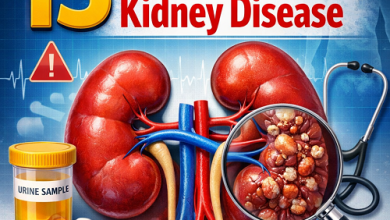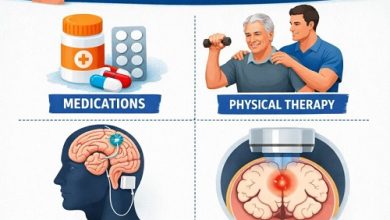The Surprising Connection Between Yogurt and Heart Health—Doctors Explain

A Spoonful of Surprise
What if something as simple as your morning cup of yogurt could secretly be protecting your heart?
For years, yogurt has been known as a gut-friendly superfood—great for digestion, immunity, and even weight control. But new research reveals that its benefits go far deeper… all the way to your heart.
Doctors now believe that regular consumption of yogurt can help lower cholesterol, balance blood pressure, and reduce inflammation—all major factors in heart disease prevention.
This isn’t just another “health trend.” It’s science-backed, doctor-approved, and surprisingly delicious.
Why Heart Health Matters More Than Ever
Heart disease remains the number one cause of death worldwide. Every 33 seconds, someone dies from cardiovascular complications—most of which could have been prevented.
The culprits are everywhere:
- Processed food
- Sedentary lifestyles
- Chronic stress
- High cholesterol
- Uncontrolled blood pressure
But here’s the good news—small, consistent dietary choices can have a huge impact. And yogurt, according to several studies, might be one of the most heart-protective foods you can eat every day.
Yogurt and Heart Health
So, what’s the real link between yogurt and heart health?
It comes down to three key factors:
- Probiotics (good bacteria)
- Nutrients (like calcium, potassium, and magnesium)
- Impact on cholesterol and blood pressure
Let’s unpack how each of these helps your heart thrive.
1. The Power of Probiotics: Your Gut-Heart Connection
Modern science has uncovered a fascinating truth—the gut and heart are deeply connected.
Your gut microbiome (the community of bacteria living inside your intestines) plays a major role in regulating inflammation, cholesterol metabolism, and even blood vessel function.
Yogurt is rich in probiotics, which are beneficial bacteria that help maintain gut balance.
According to Dr. Frank Hu, Professor of Nutrition and Epidemiology at Harvard University,
“A healthy gut microbiome can influence heart health by reducing systemic inflammation and improving lipid profiles.”
In other words: when your gut is happy, your heart is too.
2. Yogurt’s Nutritional Goldmine
Beyond probiotics, yogurt is packed with essential nutrients your heart needs to function properly:
Calcium:
Helps regulate heartbeat and strengthen blood vessels.
Potassium:
Flushes out excess sodium, helping control blood pressure.
Magnesium:
Improves blood flow and prevents irregular heart rhythms.
Protein:
Keeps you full, stabilizes blood sugar, and supports muscle (including heart muscle) repair.
Vitamin B12 and Riboflavin:
Support energy metabolism and reduce oxidative stress on the heart.
Every spoonful of yogurt delivers these nutrients in a natural, easily absorbed form—making it a perfect addition to your daily heart-care routine.
3. Yogurt’s Role in Lowering Cholesterol
High cholesterol silently damages arteries and increases the risk of heart attack and stroke.
Research shows that regular yogurt consumption can help lower LDL (bad cholesterol) and raise HDL (good cholesterol).
A 2018 study published in the American Journal of Hypertension found that people who ate at least two servings of yogurt per week had a 20% lower risk of major cardiovascular events compared to those who rarely ate it.
How does it work?
- Probiotics in yogurt bind cholesterol in the gut, preventing it from entering the bloodstream.
- Yogurt’s healthy fats improve lipid balance over time.
4. Blood Pressure Benefits: The Dairy Difference
High blood pressure is often called the “silent killer.” It damages blood vessels quietly until it’s too late.
But yogurt’s mix of calcium, potassium, and magnesium can help regulate this dangerous condition.
A major study in the Journal of Hypertension found that women who consumed yogurt regularly had significantly lower blood pressure and reduced risk of developing hypertension.
Even better—low-fat or Greek yogurt options amplify this effect, thanks to their high protein and low sodium content.
5. Inflammation: The Root of Heart Disease
Chronic inflammation is at the heart (pun intended) of nearly every cardiovascular issue.
When your body stays in a constant state of inflammation, arteries become damaged, plaque builds up, and blood flow weakens.
The probiotics and nutrients in yogurt work together to calm this internal fire.
- Probiotics reduce inflammatory molecules in the gut.
- Calcium and magnesium balance nerve and muscle function.
- Antioxidants in fortified or fruit yogurts add another layer of protection.
Regular yogurt consumption = a calmer, healthier internal system.
6. Weight Management and Heart Health
Let’s be honest—maintaining a healthy weight plays a huge role in keeping your heart strong.
Yogurt is a weight-management superhero because:
- It’s high in protein, which increases satiety.
- It helps regulate appetite hormones.
- It keeps blood sugar stable, reducing sugar cravings.
A balanced weight lowers your risk for high cholesterol, diabetes, and heart disease—all while keeping your energy high.
So, your daily yogurt snack might be doing more than keeping you full—it’s protecting your heart, too.
7. Not All Yogurts Are Created Equal
Before you run to the dairy aisle, remember this: some yogurts are heart-healthy heroes, while others are sugar bombs in disguise.
When choosing yogurt, doctors recommend looking for:
✅ Low-fat or nonfat varieties
✅ Low sugar (less than 10g per serving)
✅ Live active cultures (probiotics)
✅ No artificial flavors or sweeteners
Greek yogurt is especially praised for heart health—it’s higher in protein and lower in lactose and sugar.
Avoid:
- Flavored yogurts with added syrups
- Full-fat versions loaded with saturated fat
- “Dessert-style” yogurts pretending to be healthy
Your heart deserves the cleanest, most natural form.
8. How Much Yogurt Should You Eat for Heart Health?
Experts suggest aiming for 2–3 servings per week, though daily consumption offers added benefits.
A serving typically equals:
- ¾ cup (170g) of Greek yogurt, or
- 1 cup (245g) of regular yogurt
Pairing it with fruits, nuts, or oats boosts fiber and antioxidant intake, creating a heart-healthy power combo.
9. The Emotional Connection: Food as Healing
Let’s pause the science for a moment.
There’s something deeply emotional about taking care of your heart—not just physically, but spiritually.
Every spoonful of yogurt represents self-care, nourishment, and gentle love for your body.
In a world that pushes speed and stress, a quiet moment with a simple bowl of yogurt can be a reminder that healing doesn’t have to be complicated.
Sometimes, the smallest daily habits—like choosing yogurt over processed snacks—can have the biggest long-term rewards.
10. Real Stories: Yogurt and Heart Health in Action
Maria, 54 – “I Replaced My Dessert, and My Cholesterol Dropped”
“I used to crave sweets after dinner. My doctor told me to try plain Greek yogurt with honey and berries. Within three months, my cholesterol numbers improved, and I lost 8 pounds without feeling deprived.”
James, 62 – “My Blood Pressure Finally Stabilized”
“I started adding yogurt to my breakfast every morning. Over time, my doctor noticed my blood pressure readings were consistently better. It’s now a permanent part of my diet.”
Lena, 38 – “It Helped My Stress and Digestion Too”
“I didn’t expect it, but eating yogurt daily improved my digestion and my mood. I feel calmer, lighter, and just… healthier.”
Real stories, real results. That’s the beauty of natural healing through simple food choices.
11. Combining Yogurt with a Heart-Healthy Lifestyle
While yogurt plays a powerful role, your heart thrives best when it’s part of an overall balanced lifestyle:
💚 Eat a Mediterranean-inspired diet — olive oil, nuts, fish, and fruits.
🚶♀️ Stay active — even a 30-minute walk daily boosts circulation.
💤 Sleep well — poor sleep increases heart strain.
🧘 Manage stress — meditation, deep breathing, or yoga, calm your nervous system.
🚭 Avoid smoking and limit alcohol — both harm blood vessels.
Yogurt becomes even more effective when combined with these healthy habits—it’s the perfect companion in your heart-care journey.
12. Doctors’ Take: Why Yogurt Deserves a Spot on Your Plate
Cardiologists and nutritionists are increasingly recommending yogurt for heart patients.
Dr. Dariush Mozaffarian, cardiologist and professor at Tufts University, says:
“Yogurt is a unique dairy food—it combines protein, nutrients, and probiotics in a way that supports metabolic and cardiovascular health.”
In simple terms: Yogurt isn’t just a snack; it’s a strategic food for long-term heart protection.
13. Easy Ways to Add Yogurt to Your Diet
If you’re not a yogurt fan yet, here are some easy, tasty ways to make it part of your day:
🥣 Breakfast:
Mix with oats, chia seeds, and berries for a power-packed morning bowl.
🥗 Lunch:
Use as a creamy base for dressings or dips instead of mayo.
🍛 Dinner:
Add a dollop to soups or curries for a probiotic boost.
🍨 Snack/Dessert:
Top plain yogurt with honey, nuts, or cinnamon—it feels indulgent but stays heart-healthy.
14. The Bigger Picture: Small Choices, Stronger Heart
When it comes to your heart, every bite matters.
Choosing yogurt might seem small, but it’s one of those choices that ripple into big results—lower cholesterol, steadier blood pressure, better weight control, and a calmer body.
You don’t need perfection—you need consistency.
One cup today, another tomorrow, and soon, you’ll realize your heart feels lighter, your energy stronger, and your health more balanced.
Conclusion: Let Your Heart Thank You
The next time you reach for your grocery cart, remember this: the secret to a healthier heart might be sitting right in the dairy aisle.
Science and doctors agree—yogurt and heart health are deeply connected.
It’s natural, affordable, and easy to make part of your daily routine. And most importantly, it works.
So go ahead, grab that spoon, and make a small choice today that your future self—and your heart—will thank you for.




